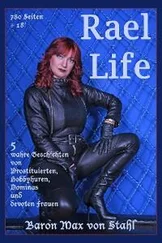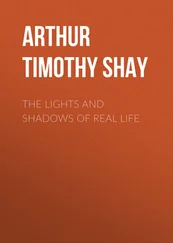Not long after this humiliation, Mother Superior found me with my hands in the sink when she checked the girls’ lavatory on one of her rounds. Although I tried to explain that I was only washing my hands as my mother insisted that I must, Mother Superior hit me for playing in water when I was supposed to be using the toilet.
Like a criminal with a record, suddenly I became a suspect on other counts: guilty until proven innocent, which is how kids were usually treated on the reservation. Need I say that these false accusations by the holy purveyors of Catholicism made me suspicious of them and their teaching? They already looked pretty ominous in all that black and what with the stories circulating in the playground that the nuns shaved their heads (which I had earlier been willing to discount), I became a most reluctant Catholic. I enjoyed reciting a couple of the prayers, the ‘Hail Mary’ and the ‘Hail Holy Queen’, and continued to think that the picture of Mary and the statues of her with her baby were very nice, but I stopped believing in the priests and nuns, because they couldn’t be trusted. This was one child that the Catholic faith managed to lose by the age of five.
One of the saving graces of being so young was that no emotional injuries seemed to absorb me for very long. Unfortunately they probably burrowed themselves into the deep dark crevices of my brain.
The streets imposed a greater fear than the church. My instinct to defend myself came back fortified. ‘Take no shit’ is a policy that dies hard. I couldn’t stop being Goody Two-Shoes, though, because I enjoyed the role too much. And I can’t say that I was ever tempted to get up to more devilment at this stage than to use one of my grandmother’s elastic garters as a slingshot. It never crossed my mind to talk back to my elders, engrave PUSSY or FUCK on a school lavatory door, spit, or even take advantage of somebody smaller than me, although these were among the shenanigans that went on around me. I posed fearlessly in the face of threats and attacks but still tried to act like a lady most of the time for my mother’s benefit, if not for my own.
My mother made sure that all her children could read and write before we went to school. This was handy, because there were other important things to take in during out last year on 23rd Street: the sights and sounds of people struggling to stay on top of life while there was too little of everything from hope to money and living space. I won’t say that fear and frustration bring out the best in people or make them the nicest neighbours, but there was a lot to be learned from them.
The social isolation of the reservation was broken by an electrical device introducing the world outside, the other America where my mother and aunt worked each day. This device instantly became my best friend. Like my grandmother, it was always available. Television turned our sparse kitchen into an entertainment centre.
My family always laughed a lot anyway, and television gave us one thing after another to hoot about and something like a home fire to gather around in the evening. Whenever someone clicked the big right-hand knob that turned it on, we’d end up laughing. Everybody on it was white and really quite nice. They were always smiling when they told you about Bayer aspirins or Bromo Seltzer. People talked, sang and danced, and always wore lovely outfits and costumes.
I had enjoyed occasional visits from friends of Edna’s: Miss Ossie and Miss Deet, Miss Ophelia and Miss Myrtle, whose gold front tooth gleamed when she flashed me a smile. I was usually allowed to sit and listen to them chewing the fat at the white enamelled kitchen table. Miss Ophelia was my favourite, with her steel-grey hair pulled back severely in a chignon like Edna’s. But these visitors, who turned our kitchen into a parlour, couldn’t compete with television. Shirley Temple and Bill Robinson dancing a duet, Tom Mix or Hoot Gibson in a shoot-out, Gene Autry – the Singing cowboy – Kukla, Fran and Ollie, which was my favourite puppet show, and the cat-and-mouse cartoons changed life in our kitchen.
Outside, the streets remained the same.
Finally closing the door on those two rooms was not a sentimental experience for any of the family, but some of my sweetest early childhood memories will always be locked there, like the sight of my father in a soft lamplight as he showed me how to draw a ship with sails. That evening wasn’t diminished by our four barren walls. Once I looked out of our window and saw the Oscar Mayer man in his delivery van which was shaped like a hot dog. It pulled up outside Max Bender’s and parked there long enough for me to run down and get a close look at it with all the other children. For that moment, 23rd Street might have been a fantasy island. And I can still picture the store at the bad end of the street with a jukebox that played ‘The Glory Of Love’ for one nickel. For the pleasure it brought it could have been a corner of the ballroom in High Society . Still, the idea of us living in a house by ourselves made goodbye easy.
When we moved to Germantown in 1951, we only took the new television and my grandmother’s bedroom suite. My mother had hoped that she was leaving everything else behind – the cussing and swearing, the thugs on the street corners. She was even letting us off the harsh discipline of Catholic School.
Germantown is a district of Philadelphia that was originally settled 300 years ago by thirteen Quaker and Mennonite families from Krefeld, Germany. In those days it was 5700 acres of land to the northeast of Philadelphia. It was divided by an Indian trail which remains its main thoroughfare, Germantown Avenue. Who knows what happened to the amiable Indians? Like fallen leaves, they disappeared without mention or trace.
The Krefelders and their leader, Francis Daniel Pastorious, an aristocrat and scholar, were part of William Penn’s ‘holy experiment’. These Krefelders made the first public protest against slavery in 1688 when they declared that all human beings had the right to live as free men. At the time, this was considered too radical to be readily accepted by the Quakers.
For generations the community remained German. Both the Bible and a newspaper were printed there in German. The district didn’t begin to attract the English until 1750, when William Allen, the chief justice of Pennsylvania, built his country seat there, Mount Airy. As more English followed him, English architecture merged with German into a specific style called Anglo-German. The district was considered a German township until about 1830, when the English became dominant, setting up their own press and linking Germantown to Philadelphia by train. For the next hundred or so years, right up to the Second World War, Germantown was one of the more fashionable districts of Philadelphia.
By the time my family moved in, there were too many Melangians in the district for it to be considered fashionable any more. It wasn’t unusual in the summer months to hear the watermelon man hawking his wares in the street, selling watermelons for 25 cents or five cantaloupes for a dollar from his open-back pick-up truck. But some of the early historic residences and the Market Square with its Civil War monument were still standing, maintained by the Germantown Historical Society. They made impressions on me as permanent as 23rd Street. Germantown still had a decidedly German and English feeling about it. I didn’t know to what extent at the time.
Our small seven-room terraced house with a front and back garden made an immense difference to our lives.
To help my grandmother plant our first garden was to discover with great pride that she knew the names of the flowers and trees and how to tend the earth and things that grew from it. Marigolds and dahlias, hollyhocks and morning glories sprouted, and I checked their growth each day with awe and anticipation. She planted some seeds for me that would grow into cobs of corn for popping, so the packet said. I can’t remember if they did. She even bought the almanac to study planting times, but I discovered to my horror that her interest in what the moon and stars were doing was mostly astrological.
Читать дальше











